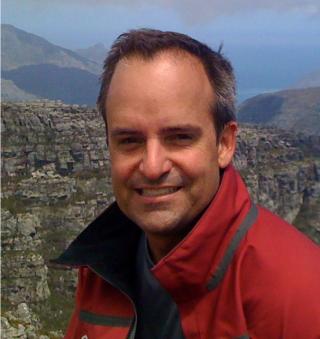Professor Hurtt received his Ph.D from Princeton University in 1997. From 1998-2010, Dr. Hurtt worked at the University of New Hampshire in the Institute for the Study of Earth Oceans and Space and Department of Natural Resources, finally becoming Chair of the Natural Resources and Earth System Science Ph.D. Program, UNH's largest doctoral program, and Director the Complex Systems Research Center, UNH's main center focused on Earth System Science. In 2010, Dr. Hurtt joined the University of Maryland Department of Geography as Professor & Research Director, and in 2011 he was named Associate Director of the Joint Global Change Research Institute, and Associate Director of Research Innovations at the National Socio-Environmental Synthesis Center (SESYNC). He has served as Chair of the NASA Earth Science Senior Review, Chair of the University of Maryland Research Council, and Chair of the University of Maryland Discovery-Creativity-Innovation Committee for the Strategic Plan. He is the founding Science Team Leader of the NASA Carbon Monitoring System (CMS) and member of the Mission Team for NASA Global Ecosystem Dynamics Investigation (GEDI). Dr. Hurtt is a lead architect of Ecosystem Demography (ED) and Land Use Harmonization (LUH) models widely used in studies of the global carbon cycle, climate change, and biodiversity. He leads the development of the first remote-sensing based forest carbon monitoring and modeling system in official state use, now a global prototype. He is the author/co-author of >100 peer reviewed publications and has contributed to numerous national and international scientific assessments including the Millennium Ecosystem Assessment, Intergovernmental Panel on Climate Change (IPCC), Global Carbon Budget, and the 1st National Nature Assessment. Dr. Hurtt is the recipient of numerous honors and distinctions including the University of Maryland Distinguished Scholar-Teacher Award.
Areas of Interest
- Earth System Science
- Climate Change
- Cabon
- Land Use
- Ecology
- Mathematical Modeling
- Remote Sensing
Degrees
-
Degree TypePh.DDegree DetailsEcology & Evolutionary Biology, Princeton University, 1997
-
Degree TypeMSDegree DetailsEcology & Evolutionary Biology, Princeton University, 1994
-
Degree TypeMSDegree DetailsEcology & Evolutionary Biology, University of Connecticut, 1992
-
Degree TypeBADegree DetailsMiddlebury College, 1990
| Course Name | Course Title | Semester | Syllabus |
|---|---|---|---|
| GEOG415 | Land Use, Climate Change, and Sustainability | Spring 2019 | Syllabus |
| GEOG615 | Land Cover and Land Use Change | Spring 2019 | Syllabus |
| GEOG442 | Biogeography and Environmental Change | Fall 2019 | Syllabus |
| GEOG642 | Biogeography and Environmental Change | Fall 2019 | Syllabus |
| GEOG415 | Land Use, Climate Change, and Sustainability | Spring 2018 | Syllabus |
| GEOG615 | Land Cover and Land Use Change | Spring 2018 | Syllabus |
| GEOG442 | Biogeography and Environmental Change | Fall 2018 | Syllabus |
| GEOG642 | Biogeography and Environmental Change | Fall 2018 | Syllabus |
| GEOG442 | Biogeography and Environmental Change | Fall 2017 | Syllabus |
| GEOG642 | Biogeography and Environmental Change | Fall 2017 | Syllabus |
| GEOG442 | Biogeography and Environmental Change | Fall 2016 | Syllabus |
| GEOG642 | Biogeography and Environmental Change | Fall 2016 | Syllabus |
| GEOG442 | Biogeography and Environmental Change | Fall 2015 | Syllabus |
| GEOG642 | Biogeography and Environmental Change | Fall 2015 | Syllabus |
| GEOG442 | Biogeography and Environmental Change | Fall 2014 |
| Course Name | Course Title | Semester | Syllabus |
|---|---|---|---|
| GEOG301 | Advanced Geographical Environmental Systems | Spring 2017 | Syllabus |
Dr. Hurtt is interested in the structure, function, and dynamics of ecological systems in the context of global change. His primary approach is to combine mathematics and data to develop models for scientific understanding and prediction. He has published on a wide range of topics including: the structure and dynamics of terrestrial ecosystems, latitudinal and elevational gradients in biodiversity, and ocean and terrestrial ecosystem models for use in studies of the global carbon cycle and global climate change. Current research is focused on the development and application of mathematical models to address issues such as: the sustainability of land-use practices and their effect climate, the effects of disturbances on ecosystem structure and function, terrestrial carbon sequestration and MRV, biodiversity and ecosystem services, and interactions between the biosphere, hydrosphere, atmosphere and society.
Primary Investigator
-
Associate Chair, Department of Geographical Sciences
-
Science Team Leader, NASA Carbon Monitoring System
-
Co-Chair, Land Use Model Intercomparison Project (CMIP6)
-
Executive Board, Environmental Research Ecology
-
Guest Editor, Environmental Research Letters
Current Students
Former Students
-
Dr. R. Quinn ThomasVirginia Tech
-
Dr. Manoel CardosoInstituto Nacional de Pesquisas Espaciais, Brasil
-
Dr. Michael PalaceInstitute for the Study of Earth, Oceans, and Space, University of New Hampshire
-
Dr. Ritvik SahajpalUniversity of Maryland
-
Dr. Justin FiskCarbon Mapper
-
Dr. Katelyn DolanRegrow Ag
-
Dr. Steve FlanaganU.S. Forest Service
-
Dr. Donal O'LearyFinite Carbon
-
Dr. Rachel LambMaryland Department of Environment
-
Dr. Lei MaUniversity of Maryland
Related Students (Listed by Student on Student's Profile)
-
Quan Shen


